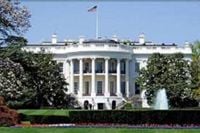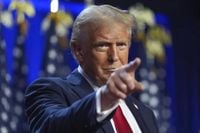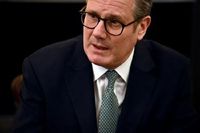In a significant shift in global economic policy, British Prime Minister Keir Starmer has declared that "the world as we know it has changed" due to the global tariff policies instituted by U.S. President Donald Trump. This statement, made in an article for the Sunday Telegraph on April 6, 2025, underscores the profound impact that Trump's administration has had on international trade and relations.
Starmer's assertion reflects a broader sentiment that globalization, a process that has defined economic interactions since the latter half of the 20th century, is experiencing a dramatic reversal. Darren Jones, the Principal Secretary of the British Ministry of Finance, echoed this sentiment, stating, "Globalization, as we have known it for the last several decades, has ended." This remark was made during an interview with journalist Laura Kuenssberg on the BBC, where he discussed the implications of Trump's policies on global trade.
The implications of Trump's tariff policies are significant. By imposing tariffs, Trump argues that the U.S. has been harmed by various countries and that it needs to be "liberated" from these economic constraints. This rhetoric of blaming foreign nations for domestic economic issues has become a hallmark of Trumpism, a term that encapsulates the political philosophy and strategies associated with Trump.
Critics of Trump's administration point to a series of policies that illustrate this blame-the-foreigner mentality. These include the freezing of USAID, the withdrawal from international agreements such as the Paris Climate Agreement, and the Trans-Pacific Partnership. Each of these moves has been framed as necessary actions to protect American interests, but they have also sparked significant backlash from international allies.
Adding to the controversy, Elon Musk, a prominent supporter and donor to Trump, has suggested that the U.S. should consider leaving the United Nations altogether. This proposal aligns with the broader anti-globalization sentiment that has emerged in response to Trump's policies, which many perceive as a rejection of multilateralism.
Another defining characteristic of Trumpism is its stance on immigration. The Trump administration has implemented strict immigration controls, leading to the arrest of individuals accused of violating U.S. immigration laws. Critics argue that these measures have been excessively harsh, with reports of aggressive tactics employed by law enforcement, including allegations of kidnappings.
Moreover, the Trump administration has faced criticism for its treatment of veterans. Despite portraying itself as a staunch supporter of law enforcement and military personnel, it has reduced funding for veteran services and cut thousands of jobs from the Department of Veterans Affairs. This contradiction raises questions about the administration's commitment to those who have served the country.
Trumpism also diverges from traditional political norms, particularly in its disregard for political correctness. Supporters of Trump argue that a more straightforward, sometimes abrasive communication style is preferable to the euphemistic language often used by politicians. This approach has contributed to a cult of personality around Trump, where his supporters view him as a strongman figure in a political landscape that they believe has become too sanitized.
As Trump's policies continue to unfold, the consequences of his administration's approach to global trade and diplomacy are becoming increasingly evident. The shift away from globalization not only affects international economic relations but also reshapes the political landscape in countries around the world. The emergence of strongman leaders who adopt similar tactics to Trump is a troubling trend that could lead to further instability.
In summary, as Starmer and Jones have articulated, the era of globalization that defined the late 20th and early 21st centuries appears to be coming to an end. The global tariff policies implemented by Trump serve as a catalyst for this transformation, prompting leaders and economists to reassess their strategies in a rapidly changing world.
The ramifications of this shift will likely be felt for years to come, as nations grapple with the new realities of international trade and the potential rise of nationalist policies. The question remains: how will countries adapt to a world where the principles of globalization are increasingly challenged?






